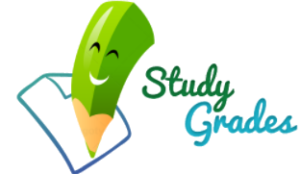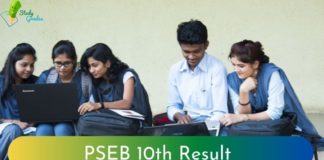UGC NET Syllabus 2024- NTA releases the syllabus of UGC NET 2024 along with the official notification. The UGC NET 2024 syllabus is available in a pdf format. Candidates can download the UGC NET syllabus pdf for all subjects from www.ugc.ac.in. UGC NET exam syllabus 2024 contains subject-wise topics and chapters that need to be covered for NTA UGC NET exam.
National Testing Agency conducts the UGC NET 2024 twice in December and June. UGC NET exam is conducted in two papers – Paper-I and Paper-II consisting of multiple-choice questions (MCQs) and all questions are mandatory. Here, candidates can check the complete details regarding the UGC NET 2024 Syllabus given as under.
UGC NET Syllabus 2024 PDF Links- Subject-wise
Candidates are suggested to cover all the topics of the UGC NET exam syllabus while preparing for the exam. Here, candidates can go through the following UGC NET 2024 syllabus which is provided as under:
NTA UGC NET Exam Syllabus PDF Download
| Subject Code |
Subject | Download UGC NET Syllabus PDF |
| 0 | General Paper on Teaching & Research Aptitude (Paper -I) | Download |
| 1 | Economics / Rural Economics /Co-operation / Demography / Development Planning/ Development Studies/Econometrics/ Applied Economics/Development Eco./Business Economics | Download |
| 2 | Political Science | Download |
| 3 | Philosophy | Download |
| 4 | Psychology | Download |
| 5 | Sociology | Download |
| 6 | History | Download |
| 7 | Anthropology | Download |
| 8 | Commerce | Download |
| 9 | Education | Download |
| 10 | Social Work | Download |
| 11 | Defence and Strategic Studies | Download |
| 12 | Home Science | Download |
| 14 | Public Administration | Download |
| 15 | Population Studies | Download |
| 16 | Music | Download |
| 17 | Management (including Business Admn. Mgt./Marketing/ Marketing Mgt./Industrial Relations and Personnel Mgt./ Personnel Mgt./Financial Mgt./Co-operative Management) | Download |
| 18 | Maithili | Download |
| 19 | Bengali | Download |
| 20 | Hindi | Download |
| 21 | Kannada | Download |
| 22 | Malayalam | Download |
| 23 | Oriya | Download |
| 24 | Punjabi | Download |
| 25 | Sanskrit | Download |
| 26 | Tamil | Download |
| 27 | Telugu | Download |
| 28 | Urdu | Download |
| 29 | Arabic | Download |
| 30 | English | Download |
| 31 | Linguistics | Download |
| 32 | Chinese | Download |
| 33 | Dogri | Download |
| 34 | Nepali | Download |
| 35 | Manipuri | Download |
| 36 | Assamese | Download |
| 37 | Gujarati | Download |
| 38 | Marathi | Download |
| 39 | French (French Version) | Download |
| French (English Version) | Download | |
| 40 | Spanish | Download |
| 41 | Russian | Download |
| 42 | Persian | Download |
| 43 | Rajasthani | Download |
| 44 | German | Download |
| 45 | Japanese | Download |
| 46 | Adult Education/ Continuing Education/ Andragogy/ Non Formal Education. | Download |
| 47 | Physical Education | Download |
| 49 | Arab Culture and Islamic Studies | Download |
| 50 | Indian Culture | Download |
| 55 | Labour Welfare/Personnel Management/Industrial Relations/ Labour and Social Welfare/Human Resource Management | Download |
| 58 | Law | Download |
| 59 | Library and Information Science | Download |
| 60 | Buddhist, Jaina, Gandhian and Peace Studies | Download |
| 62 | Comparative Study of Religions | Download |
| 63 | Mass Communication and Journalism | Download |
| 65 | Performing Art – Dance/Drama/Theatre | Download |
| 66 | Museology & Conservation | Download |
| 67 | Archaeology | Download |
| 68 | Criminology | Download |
| 70 | Tribal and Regional Language/Literature | Download |
| 71 | Folk Literature | Download |
| 72 | Comparative Literature | Download |
| 73 | Sanskrit traditional subjects (including) Jyotisha/Sidhanta Jyotish/ Navya Vyakarna/ Vyakarna/ Mimansa/ Navya Nyaya/ Sankhya Yoga/ Tulanatmaka Darsan/ Shukla Yajurveda/ Madhav Vedant/ Dharmasasta/ Sahitya/ Puranotihasa /Agama). | Download |
| 74 | Women Studies | Download |
| 79 | Visual Art (including Drawing & Painting/Sculpture Graphics/Applied Art/History of Art) | Download |
| 80 | Geography | Download |
| 81 | Social Medicine & Community Health | Download |
| 82 | Forensic Science | Download |
| 83 | Pali | Download |
| 84 | Kashmiri | Download |
| 85 | Konkani | Download |
| 87 | Computer Science and Applications | Download |
| 88 | Electronic Science | Download |
| 89 | Environmental Sciences | Download |
| 90 | Politics including International Relations/International Studies including Defence/Strategic Studies, West Asian Studies, South East Asian Studies, African Studies, South Asian Studies, Soviet Studies, American Studies. | Download |
| 91 | Prakrit | Download |
| 92 | Human Rights and Duties | Download |
| 93 | Tourism Administration and Management. | Download |
| 94 | BODO | Download |
| 95 | Yoga | Download |
| 101 | Sindhi | Download |
UGC NET Syllabus 2024 for Paper-1
Paper – 1 is common for all candidates that analyse the candidate’s teaching and research ability, mental abilities, general awareness about teaching and learning methods in the higher education systems.
UGC NET Teacher Aptitude Syllabus:
- Teaching: Concept, Objectives, Levels of teaching (Memory, Understanding and Reflective), Characteristics and basic requirements.
- Learner’s characteristics: Characteristics of adolescent and adult learners (Academic, Social, Emotional and Cognitive), Individual differences.
- Factors affecting teaching related to Teacher, Learner, Support material, Instructional facilities, Learning environment and Institution.
- Methods of teaching in Institutions of higher learning: Teacher centred vs. Learner centred methods; Off-line vs. On-line methods (Swayam, Swayamprabha, MOOCs etc.).
- Teaching Support System: Traditional, Modern and ICT based.
- Evaluation Systems: Elements and Types of evaluation, Evaluation in Choice Based Credit System in Higher education, Computer-based testing, Innovations in evaluation systems.
UGC NET Research Aptitude Syllabus
- Research: Meaning, Types, and Characteristics, Positivism and Postpositivistic approach to research.
- Methods of Research: Experimental, Descriptive, Historical, Qualitative and Quantitative Methods, Steps of Research.
- Thesis and Article writing: Format and styles of referencing.
- Application of ICT in research.
- Research ethics.
UGC NET Comprehension Syllabus
This section contains the passage of the text. The Questions will be asked from the passage to be answered.
Communication
- Communication: Meaning, types and characteristics of communication.
- Effective communication: Verbal and Non-verbal, Inter-Cultural and group communications, Classroom communication.
- Barriers to effective communication.
- Mass-Media and Society.
Mathematical Reasoning and Aptitude Syllabus
- Number series,
- Letter series,
- Codes and Relationships.
- Mathematical Aptitude (Fraction, Time & Distance, Ratio, Proportion and Percentage, Profit and Loss, Interest and Discounting, Averages etc.)
Logical Reasoning Syllabus
- Understanding the structure of arguments: argument forms, structure of categorical propositions, Mood and Figure, Formal and Informal fallacies, Uses of language, etc.
- Evaluating and distinguishing deductive and inductive reasoning.
- Analogies.
- Venn diagram: Simple and multiple use for establishing validity of arguments.
- Indian Logic: Means of knowledge.
- Pramanas: Pratyaksha (Perception), Anumana (Inference), Upamana (Comparison), Shabda (Verbal testimony), Arthapatti (Implication) and Anupalabddhi (Non-apprehension).
- Structure and kinds of Anumana (inference), Vyapti (invariable relation), Hetvabhasas (fallacies of inference).
Data Interpretation Syllabus
- Sources, acquisition and classification of Data.
- Quantitative and Qualitative Data.
- Graphical representation (Bar-chart, Histograms, Pie-chart, Table-chart and Line-chart) and mapping of Data.
- Data Interpretation.
- Data and Governance.
Information and Communication Technology (ICT) Syllabus
ICT: General abbreviations and terminology.
- Basics of Internet, Intranet, E-mail, Audio and Video-conferencing.
- Digital initiatives in higher education.
- ICT and Governance.
People, Development and Environment Syllabus
- Development and environment: Millennium development and Sustainable development goals.
- Human and environment interaction: Anthropogenic activities and their impacts on the environment.
- Environmental issues: Local, Regional and Global; Air pollution, Water pollution, Soil pollution, Noise pollution, Waste (solid, liquid, biomedical, hazardous, electronic), Climate change and its Socio-Economic and Political dimensions.
- Impacts of pollutants on human health.
- Natural and energy resources: Solar, Wind, Soil, Hydro, Geothermal, Biomass, Nuclear and Forests.
- Natural hazards and disasters: Mitigation strategies, etc.
Higher Education System Syllabus
- Institutions of higher learning and education in ancient India.
- Evolution of higher learning and research in Post Independence India.
- Oriental, Conventional and Non-conventional learning programmes in India.
- Professional, Technical and Skill Based education, etc.
UGC NET Syllabus 2024 for Paper-2
Paper-II consists of only 100 objective type questions (MCQs) for 200 marks. A total of 101 subjects will be covered in the UGC NET Exam. Candidates will have to choose one subject for the NET Exam. They can opt for Economics, Political Science, Malayalam, History, Sociology, Commerce, Psychology, Philosophy, English as per their interest.
UGC NET Syllabus 2024 for Commerce
- Business Environment and International Business
- Accounting and Auditing
- Business Economics
- Business Finance
- Business Statistics and Research Methods
- Business Management and Human Resource Management
- Banking and Financial Institutions
- Marketing Management
- Legal Aspects of Business
- Income-tax and Corporate Tax Planning
UGC NET Syllabus 2024 for Economic
| Section | Topic |
| Micro Economics |
|
| Micro Economics |
|
| Statistics and Econometrics |
|
| Mathematical Economics |
|
| International Economics |
|
| Public Economics |
|
| Money and Banking |
|
| Growth and Development Economics |
|
| Environmental Economics and Demography |
|
| Indian Economy |
Responses
Responses
Responses
Partnerships
|
UGC NET Syllabus 2024 for Sociology
| Section | Topic |
| Sociology Theory | 1. Classical Sociological Traditions
2. Structure- Functionalism and Structuralism
3. Hermeneutic and Interpretative Traditions
4. Post Modernism, Post Structuralism and Post Colonialism
5. Indian Thinkers
|
| Research Methodology and Methods |
|
| Basic Concepts and Institution |
|
| Rural and Urban Transformations |
|
| State, Politics and Development |
|
| Economy and Society |
|
| Environment and Society |
|
| Science, Technology and Society |
|
| Culture and Symbolic Transformations |
|
UGC NET 2024 Exam Pattern
Along with the NTA UGC NET syllabus, candidates should be aware of the examination pattern. There will be Multiple Choice Questions (MCQs) and the exam duration will be 03 hours. 02 marks will be allotted to each correct answer. There will be no negative marking in the exam.
NTA UGC NET Exam Pattern
| Paper | Subjects | Number of Questions | Maximum Marks |
| Paper-1 | General Awareness, Reasoning Ability, and Divergent thinking comprehension | 50 questions | 100 marks |
| Paper-2 | Subject related question | 100 questions | 200 marks |
| Total | 150 Questions | 300 marks | |
Stay Connected With StudyGrades for Latest Updates on UGC NET 2024!











